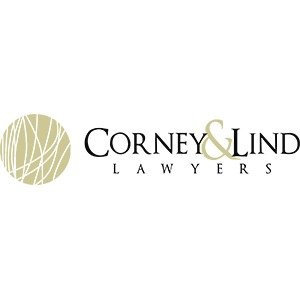Best Antitrust Litigation Lawyers in Brisbane
Share your needs with us, get contacted by law firms.
Free. Takes 2 min.
List of the best lawyers in Brisbane, Australia
About Antitrust Litigation Law in Brisbane, Australia
Antitrust litigation, commonly referred to in Australia as competition law litigation, involves legal actions related to breaches of laws designed to maintain fair and competitive markets. In Brisbane, as in the rest of Australia, antitrust law is primarily governed by the Competition and Consumer Act 2010 (Cth), which seeks to prevent anti-competitive conduct such as monopolies, cartels, price fixing, misuse of market power and other forms of restrictive trade practices. Legal proceedings in this area can be complex, often involving government regulators like the Australian Competition and Consumer Commission (ACCC), businesses, or individuals who believe their rights under competition law have been violated.
Why You May Need a Lawyer
Antitrust litigation can arise in various situations, often involving high stakes and technical legal issues. You may require the expertise of a lawyer if you are facing any of the following circumstances:
- You have received a notice from the ACCC or are the subject of an investigation regarding anti-competitive conduct.
- You believe that a competitor or a supplier is engaging in conduct that hampers fair competition, such as forming cartels, price fixing or exclusive dealing.
- Your business is considering a merger or acquisition and you need advice on compliance with competition laws to avoid future litigation.
- You have suffered loss or damage as a result of anti-competitive practices and wish to seek compensation.
- You are defending against allegations of breaching antitrust laws and risk heavy penalties or damages claims.
- You require representation in Federal Court or take part in alternative dispute resolution involving competition issues.
Legal professionals can help interpret complex statutes, assess risks, negotiate settlements, manage regulatory relations, and protect your rights during litigation or investigation.
Local Laws Overview
In Brisbane, antitrust or competition law is regulated by federal legislation and enforced primarily by the Australian Competition and Consumer Commission (ACCC). Key aspects include:
- Prohibition of Cartels: Agreements between competitors to fix prices, share markets or restrict outputs are illegal and subject to significant penalties.
- Exclusive Dealing and Anti-competitive Conduct: Businesses must not engage in conduct that lessens competition, including exclusive supply or purchase arrangements.
- Misuse of Market Power: It is unlawful for companies with substantial market power to misuse that power to eliminate or substantially damage a competitor.
- Mergers and Acquisitions: Proposals that substantially lessen competition may be blocked by the ACCC or subject to conditions.
- Private Actions: Individuals and businesses affected by anti-competitive conduct can take private legal action and seek compensation or injunctions.
- Penalties: Breaches can give rise to civil penalties, criminal prosecution, injunctions, and orders for damages.
Most antitrust litigation is heard in the Federal Court of Australia, which sits in Brisbane, and the law is applied uniformly across all Australian states and territories, including Queensland.
Frequently Asked Questions
What is antitrust litigation and how does it differ from other types of litigation?
Antitrust litigation focuses specifically on disputes and enforcement actions related to competition law, such as cartel conduct, monopolies, and misuse of market power. It differs from other litigation in that it addresses the maintenance of competitive markets and is overseen by specific regulatory bodies like the ACCC.
Which laws govern antitrust litigation in Brisbane?
The primary law is the Competition and Consumer Act 2010 (Cth). This federal law applies in Brisbane and throughout Australia, supplemented by some state laws and common law principles.
Who can initiate antitrust litigation?
Both the ACCC (the national regulator) and private parties who have suffered loss due to anti-competitive conduct can initiate antitrust litigation.
What are common examples of anti-competitive conduct?
Common examples include price fixing, bid rigging, market sharing, exclusive dealing, predatory pricing, and misuse of substantial market power.
What penalties or remedies are available for breaches of competition law?
Penalties can include significant fines, orders for damages or compensation, injunctions, and in some cases, criminal convictions and imprisonment.
How do investigations by the ACCC occur?
The ACCC may conduct investigations based on complaints, its own observations, or referrals. Investigations often involve requests for documents, interviews, and may result in court action or negotiated settlements.
Can individuals or small businesses take legal action for antitrust violations?
Yes, individuals and small businesses may bring private proceedings in the Federal Court of Australia to seek damages or injunctions if they have suffered loss from anti-competitive conduct.
What should I do if my business is under investigation for suspected anti-competitive conduct?
Seek legal advice immediately. Do not destroy documents or communicate with other parties about the investigation without speaking to a legal professional experienced in competition law.
How long does antitrust litigation typically take?
The duration varies depending on the complexity of the matter, but these cases can last several months to several years, especially if they involve multiple parties or extensive evidence.
How can I ensure my business is compliant with competition law?
Implement a robust compliance program, train staff regularly, review contracts and business practices, and seek regular legal advice to stay updated with changes to the law and ACCC enforcement priorities.
Additional Resources
To further assist you, the following resources and organisations can provide information and guidance on antitrust litigation in Brisbane:
- Australian Competition and Consumer Commission (ACCC): Offers information, guidelines, and publications about competition law and recent enforcement actions.
- Federal Court of Australia (Brisbane Registry): Handles most antitrust litigation cases. Information on court procedures and recent judgments is available.
- Queensland Law Society: Can help connect you with lawyers specialising in competition and antitrust law in Brisbane.
- Australian Consumer Law: This law, part of the Competition and Consumer Act, is also relevant for certain anti-competitive conduct.
- Legal Aid Queensland: May provide initial advice or referral for some types of competition law issues, especially for small businesses and individuals.
Next Steps
If you believe you are involved in or affected by anti-competitive conduct, or are under investigation for potential breaches of competition law, it is important to act quickly. First, gather all relevant documents and information about the issue. Next, contact a lawyer who specialises in antitrust or competition law in Brisbane. They can provide advice tailored to your situation, represent you in regulatory investigations or court proceedings, and help you understand your rights and obligations. For initial support, you may also reach out to the ACCC or the Queensland Law Society for referrals. Early legal intervention can be crucial in resolving matters efficiently and minimising legal or financial risks.
Lawzana helps you find the best lawyers and law firms in Brisbane through a curated and pre-screened list of qualified legal professionals. Our platform offers rankings and detailed profiles of attorneys and law firms, allowing you to compare based on practice areas, including Antitrust Litigation, experience, and client feedback.
Each profile includes a description of the firm's areas of practice, client reviews, team members and partners, year of establishment, spoken languages, office locations, contact information, social media presence, and any published articles or resources. Most firms on our platform speak English and are experienced in both local and international legal matters.
Get a quote from top-rated law firms in Brisbane, Australia — quickly, securely, and without unnecessary hassle.
Disclaimer:
The information provided on this page is for general informational purposes only and does not constitute legal advice. While we strive to ensure the accuracy and relevance of the content, legal information may change over time, and interpretations of the law can vary. You should always consult with a qualified legal professional for advice specific to your situation.
We disclaim all liability for actions taken or not taken based on the content of this page. If you believe any information is incorrect or outdated, please contact us, and we will review and update it where appropriate.

















